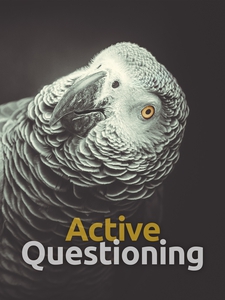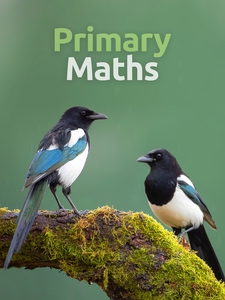NASBTT Learn
Library
Contact us for a demo
Introduction to Teaching





24 Core Modules
High Expectations
1 Why Good Teaching Matters (Preview)
In this module, trainees learn how good teaching practice improves lives. This module helps trainee teachers learn how to shape their pupils’ learning outcomes and behaviour through acting as role models. It considers the theory, history and background behind high-quality teaching and uses realistic scenarios and examples to encourage teachers to be the best role models possible, to positively shape their pupils’ behaviour.
This module covers the CCF 'Learn that...' statements:
- 1.1. Teachers have the ability to affect and improve the wellbeing, motivation and behaviour of their pupils.
- 1.2. Teachers are key role models, who can influence the attitudes, values and behaviours of their pupils.
- 1.6. High-quality teaching has a long-term positive effect on pupils’ life chances, particularly for children from disadvantaged backgrounds.
2 High Academic Expectations (Preview)
In this module, trainees learn how high academic expectations can positively influence pupils’ behaviour and learning outcomes. It covers the theory linking high expectations to improved performance, the importance of aspirational goals for all pupils, and how to create a positive learning environment where pupils feel comfortable making and learning from mistakes.
This module covers the CCF 'Learn that...' statements:
- 1.1 Teachers have the ability to affect and improve the wellbeing, motivation and behaviour of their pupils.
- 1.2 Teachers are key role models, who can influence the attitudes, values and behaviours of their pupils.
- 1.3. Teacher expectations can affect pupil outcomes; setting goals that challenge and stretch pupils is essential.
3 Clear Behaviour Expectations (Preview)
This module emphasises the importance of clear behaviour expectations, routines and instructions in creating a safe and effective learning environment. It outlines strategies for setting clear expectations, establishing norms and promoting the development of children’s ability to self-regulate.
This module covers the CCF 'Learn that...' statements:
- 1.4 Setting clear expectations can help communicate shared values that improve classroom and school culture.
- 1.5 A culture of mutual trust and respect supports effective relationship
How Pupils Learn
4 Working Memory & Attention (Preview)
In this module trainees learn how gaining pupils’ attention is essential to ensure information is held in their working memory and then transferred to long-term memory. The module highlights the impact of cognitive load on learning, emphasising the importance of reducing distractions to free up pupils’ attention. Special focus is given to supporting pupils with SEND, who may have difficulties with working memory and schema formation.
This module covers the CCF 'Learn that...' statements:
- 2.1. Learning involves a lasting change in pupils’ capabilities or understanding.
- 2.3. An important factor in learning is memory, which can be thought of as comprising two elements: working memory and long-term memory.
- 2.4. Working memory is where information that is being actively processed is held, but its capacity is limited and can be overloaded.
5 Long-term Memory & Schema (Preview)
In this module trainees explore how learning connects new concepts to existing knowledge in long-term memory. The module emphasises that new knowledge is fragile and requires consolidation through practice. Trainees will learn to structure lessons around key concepts, link new information to prior learning and sequence content effectively. Techniques like modelling, scaffolding and explicit teaching are highlighted to support durable learning.
This module covers the CCF 'Learn that...' statements:
- 2.2. Prior knowledge plays an important role in how pupils learn; committing some key facts to their long-term memory is likely to help pupils learn more complex ideas.
- 2.5. Long-term memory can be considered as a store of knowledge that changes as pupils learn by integrating new ideas with existing knowledge.
- 2.9. Worked examples that take pupils through each step of a new process are also likely to support pupils to learn.
- 3.3. Ensuring pupils master foundational concepts and knowledge before moving on is likely to build pupils’ confidence and help them succeed.
- 3.5. Explicitly teaching pupils the knowledge and skills they need to succeed within particular subject areas is beneficial.
- 3.7. In all subject areas, pupils learn new ideas by linking those ideas to existing knowledge, organising this knowledge into increasingly complex mental models (or “schemata”); carefully sequencing teaching to facilitate this process is important.
- 3.8. Pupils are likely to struggle to transfer what has been learnt in one discipline to a new or unfamiliar context.
6 Forgetting & Remembering (Preview)
This module explores why pupils naturally forget what they are taught and offers evidence-based strategies to help them retain knowledge in their long-term memory. Trainees will understand the mechanisms of memory and learn techniques to enhance retention, such as retrieval practice and spaced practice. The module emphasises that while forgetting is inevitable, there are methods to effectively reinforce remembering and learning.
This module covers the CCF 'Learn that...' statements:
- 2.7. Regular purposeful practice of what has previously been taught can help consolidate material and help pupils remember what they have learned.
- 2.8. Requiring pupils to retrieve information from memory, and spacing practice so that pupils revisit ideas after a gap are also likely to strengthen recall.
- 2.9. Worked examples that take pupils through each step of a new process are also likely to support pupils to learn.
7 Addressing Misconceptions (Preview)
This module teaches trainees how to anticipate, identify and address common misconceptions that arise within and outside the classroom, and prevent them from becoming barriers to future learning. Trainees will learn strategies to regularly check for understanding, correct misconceptions and use them as opportunities to enhance learning for the entire class. The module emphasises the importance of expecting and respecting mistakes as essential parts of the teaching and learning journey.
This module covers the CCF 'Learn that...' statements:
- 2.6. Where prior knowledge is weak, pupils are more likely to develop misconceptions, particularly if new ideas are introduced too quickly.
- 3.4 Anticipating common misconceptions within particular subjects is also an important aspect of curricular knowledge; working closely with colleagues to develop an understanding of likely misconceptions is valuable.
Subject and Curriculum
8 How the Curriculum Works (Preview)
This module covers the essentials of what the curriculum is and how it works in practice. Trainees will explore some of the key debates around curriculum design and consider what makes a good curriculum. This module also emphasises the importance of teachers having secure subject knowledge in order to be able to deliver the curriculum effectively, identify misconceptions and make cross-curricular links between subjects.
This module covers the CCF 'Learn that...' statements:
- 3.1. A school’s curriculum enables it to set out its vision for the knowledge, skills and values that its pupils will learn, encompassing the national curriculum within a coherent wider vision for successful learning.
- 3.2. Secure subject knowledge helps teachers to motivate pupils and teach effectively.
9 Dialogic Learning (Preview)
In this module trainees discover how dialogic learning (learning through talk) can be valuable to pupils throughout their learning journeys. The module outlines the impact of strategies such as reading aloud and early phonics instruction on the development of language skills. Trainees learn how to create a supportive classroom ethos and culture that can facilitate dialogic learning.
This module covers the CCF 'Learn that...' statements:
- 3.9. To access the curriculum, early literacy provides fundamental knowledge; reading comprises two elements: word reading and language comprehension; systematic synthetic phonics is the most effective approach for teaching pupils to decode.
- 3.10. Every teacher can improve pupils’ literacy, including by explicitly teaching reading, writing and oral language skills specific to individual disciplines.
Classroom Practice
10 Lesson Planning (Preview)
In this module, trainees learn how to plan effective lessons that help pupils learn, retain and build on their knowledge and understanding. It covers the core structure of a lesson and emphasises the importance of sequencing to ensure pupils’ learning is logical and coherent. Trainees learn how to use techniques like modelling and scaffolding to enable pupils to achieve the learning objectives, and how to factor these techniques into their planning.
This module covers the CCF 'Learn that...' statements:
- 4.1. Effective teaching can transform pupils’ knowledge, capabilities and beliefs about learning.
- 4.2. Effective teachers introduce new material in steps, explicitly linking new ideas to what has been previously studied and learned.
- 4.3. Modelling helps pupils understand new processes and ideas; good models make abstract ideas concrete and accessible.
- 4.4. Guides, scaffolds and worked examples can help pupils apply new ideas, but should be gradually removed as pupil expertise increases.
- 4.8. Practice is an integral part of effective teaching; ensuring pupils have repeated opportunities to practise, with appropriate guidance and support, increases success.
11 Questioning (Preview)
The average teacher asks about 400 questions per day, so it is important trainees know the theory behind asking good questions. This module outlines how questioning in the classroom impacts pupil learning through motivating, creating a sense of belonging, checking for understanding, and stimulating enquiry and curiosity. This module also explores the history behind using questioning as an educational strategy and how to identify the right type to use in a classroom scenario.
This module covers the CCF 'Learn that...' statements:
- 4.6. Questioning is an essential tool for teachers; questions can be used for many purposes, including to check pupils’ prior knowledge, assess understanding and break down problems.
- 4.7. High-quality classroom talk (sometimes referred to as oracy) can support pupils to articulate key ideas, consolidate understanding and extend their vocabulary.
12 Collaborative Learning (Preview)
Collaborative learning helps prepare pupils for real-world teamwork and develops essential skills. This module explores techniques, research and practical advice for making collaborative learning most effective. It explores the history and theory behind using collaborative learning to support lesson outcomes and focuses on the importance of careful planning and continuous support from teachers and other adults to ensure successful collaboration between pupils.
This module covers the CCF 'Learn that...' statements:
- 4.9. Paired and group activities can increase pupil success, but to work together effectively pupils need guidance, support and practice.
- 4.10. High-quality classroom talk can support pupils to articulate key ideas, consolidate understanding and extend their vocabulary.
13 Homework (Preview)
This module critically examines the role of homework in education. Trainees learn about how homework can enhance pupil learning, the barriers that can impede its effectiveness and strategies for making homework inclusive and impactful. The module highlights the importance of homework being aligned with classroom learning to ensure all pupils can access and benefit from it.
This module covers the CCF 'Learn that...' statement:
- 4.11. Homework can improve pupil outcomes, particularly for older pupils, but it is likely that the quality of homework and its relevance to main class teaching is more important than the amount set.
14 Metacognition (Preview)
This module teaches trainees about the concept of metacognition and importance in learning. Metacognition involves awareness of one’s own thought processes and making implicit thinking explicit in the classroom. Trainees will learn metacognitive strategies that help promote independent problem-solving skills. This module emphasises explicitly teaching these strategies to support pupils' metacognitive knowledge, regulation and academic success.
This module covers the CCF 'Learn that...' statement:
- 4.5. Explicitly teaching pupils metacognitive strategies linked to subject knowledge, including how to plan, monitor and evaluate, supports independence and academic success.
Adaptive Teaching
15 Learning Needs (Preview)
This module explores a range of different learning needs which trainees may come across. Trainees will learn about the four areas of need defined in the SEND Code of Practice, effective teaching strategies, and the role that technology can play in providing additional support for learners. Emphasis is placed on high-quality teaching, creating a supportive environment and applying targeted interventions to improve outcomes for all pupils.
This module covers the CCF 'Learn that...' statements:
- 5.7. Pupils with special educational needs or disabilities are likely to require additional or adapted support; working closely with colleagues, families and pupils to understand barriers and identify effective strategies is essential.
- 5.8. High quality teaching for all pupils, including those with SEND, is based on strategies which are often already practised by teachers, and which can be developed through training and support.
- 5.9. Technology, including educational software and assistive technology, can support teaching and learning for pupils with SEND.
16 Adaptive Teaching (Preview)
In this module trainees learn the importance of inclusive teaching strategies for all learners. Strategies such as clarity in instruction, explicit teaching, careful planning and effective use of additional staff are explored. The module focuses on evidence-based approaches and provides trainees with insights into various learning needs and ways in which they can create environments that ensure all pupils are effectively supported.
This module covers the CCF 'Learn that...' statements:
- 5.1. Adapting teaching in a responsive way, including by providing targeted support to pupils who are struggling, is likely to increase pupil success.
- 5.2. Pupils are likely to learn at different rates and to require different levels and types of support from teachers to succeed.
- 5.3. Seeking to understand pupils’ differences, including their different levels of prior knowledge and potential barriers to learning, is an essential part of teaching.
- 5.4. Adaptive teaching is less likely to be valuable if it causes the teacher to artificially create distinct tasks for different groups of pupils or to set lower expectations for particular pupils.
- 5.5 Flexibly grouping pupils within a class to provide more tailored support can be effective, but care should be taken to monitor its impact on engagement and motivation, particularly for low attaining pupils.
- 5.6. There is a common misconception that pupils have distinct and identifiable learning styles. This is not supported by evidence and attempting to tailor lessons to learning styles is unlikely to be beneficial.
Assessment
17 Assessment (Preview)
Assessment is essential for understanding whether pupils have achieved the desired learning outcomes. This module aims to familiarise trainees with assessment and equip them with skills to use assessment in their teaching. It covers different types of assessment, effective uses of assessment, and case studies and activities for practical application. The module also explores the theory behind assessment and the debates that surround it.
This module covers the CCF 'Learn that...' statements:
- 6.1. Effective assessment is critical to teaching because it provides teachers with information about pupils’ understanding and needs.
- 6.2. Good assessment helps teachers avoid being over-influenced by potentially misleading factors, such as how busy pupils appear.
- 6.3. Before using any assessment, teachers should be clear about the decision it will be used to support and be able to justify its use.
- 6.4. To be of value, teachers use information from assessments to inform the decisions they make; in turn, pupils must be able to act on feedback for it to have an effect.
18 Feedback (Preview)
Feedback is essential to improving and making progress, but ‘research suggests some types of feedback can cause more harm than good.’ This module teaches trainees how to provide timely, precise and effective feedback in a range of formats to help pupils achieve without creating excessive teacher workload.
This module covers the CCF 'Learn that...' statements:
- 6.5. High-quality feedback can be written or verbal; it is likely to be accurate and clear, encourage further effort, and provide specific guidance on how to improve.
- 6.6. Over time, feedback should support pupils to monitor and regulate their own learning.
- 6.7. Working with colleagues to identify efficient approaches to assessment is important; assessment can become onerous and have a disproportionate impact on workload.
Managing Behaviour
19 Managing Behaviour (Preview)
In this module trainees learn about the factors underlying poor behaviour and the importance of proactive behaviour management. The module focuses on building positive relationships and teaches trainees how to understand pupil motivations and use engaging teaching to prevent issues. Trainees also explore strategies for addressing low-level disruption, such as applying school behaviour policies consistently and using rewards and sanctions effectively.
This module covers the CCF 'Learn that...' statements:
- 7.1. Establishing and reinforcing routines, including through positive reinforcement, can help create an effective learning environment.
- 7.2. A predictable and secure environment benefits all pupils, but is particularly valuable for pupils with special educational needs.
- 7.3. The ability to self-regulate one’s emotions affects pupils’ ability to learn, success in school and future lives.
- 7.4. Teachers can influence pupils’ resilience and beliefs about their ability to succeed, by ensuring all pupils have the opportunity to experience meaningful success.
- 7.5. Building effective relationships is easier when pupils believe that their feelings will be considered and understood.
- 7.6. Pupils are motivated by intrinsic factors (related to their identity and values) and extrinsic factors (related to reward).
20 Self-regulation (Preview)
This module covers the CCF 'Learn that...' statement:
This module emphasises the importance of self-regulation for both pupils and teachers. It highlights the need for teachers to manage their own emotions to fulfil their roles effectively and to model self-regulation for pupils. The module teaches strategies for supporting pupils in developing their self-regulation skills, recognising that providing a safe learning environment is key. Trainees are also encouraged to manage their workload, seek support and prioritise their own wellbeing.
- 7.3. The ability to self-regulate one’s emotions affects pupils’ ability to learn, success in school and future lives.
- 7.5. Building effective relationships is easier when pupils believe that their feelings will be considered and understood.
- 7.6. Pupils are motivated by intrinsic factors (related to their identity and values) and extrinsic factors (related to reward).
Professional Behaviours
21 Reflective Practice (Preview)
This module introduces trainee teachers to reflective practice. Using a range of theories to explain types of reflection, it guides trainees through the history and academic research behind reflective practice as it applies to teaching. Practical tips accompany example activities trainees can do to enable them to use reflective practice in the classroom.
This module covers the CCF 'Learn that...' statements:
- 8.1. Effective professional development is likely to be sustained over time, building knowledge, motivating staff, developing teaching techniques, and embedding practice.
- 8.2. Reflective practice, supported by feedback from and observation of experienced colleagues, professional debate, and learning from educational research, is also likely to support improvement.
22 Contributing to School Life (Preview)
This module introduces trainees to the importance of teacher contributions beyond the classroom. Using examples and scenarios, it explores ways to engage with school life such as building professional relationships and contributing to extracurricular activities. Trainees will discover how their involvement with wider school culture can affect their pupils’ learning and broader outcomes, especially those from disadvantaged backgrounds.
This module covers the CCF 'Learn that...' statement:
- 8.3. Teachers can make valuable contributions to the wider life of the school in a broad range of ways, including by supporting and developing effective professional relationships with colleagues
23 Working with Parents (Preview)
Effective relationships between teachers and parents have a huge impact on pupils’ wellbeing and learning. In this module, trainees learn how to develop effective communication with parents, understand and overcome barriers to parental engagement and manage difficult situations. It explores the history of parental engagement with schools and uses interactive scenarios to encourage trainees to apply their learning in relevant situations.
This module covers the CCF 'Learn that...' statement:
8.4. Building effective relationships with parents, carers and families can improve pupils’ motivation, behaviour and academic success.
24 Working with TAs (Preview)
Effective collaboration between teachers and TAs enhances pupil learning outcomes and wellbeing. This module uses the latest guidance to help trainees learn how to work with TAs to ensure the best outcomes for pupils. It details best practice for working successfully with TA colleagues, with TAs supplementing rather than substituting for teachers, delivering structured interventions and providing carefully planned support in the classroom.
This module covers the CCF 'Learn that...' statement:
- 8.5. Teaching assistants (TAs) can support pupils more effectively when they are prepared for lessons by teachers, and when TAs supplement rather than replace support from teachers.
Additional modules
These groups of additional modules help add depth and general interest to your curriculum, especially on SEND and pastoral care. We also have even more modules available at no additional cost.
Teaching and Learning







Understanding the Child




SEND




Inclusion




Compliance




Primary Subjects









Personal Wellbeing



Find out more
Get in touch to speak to us or to arrange a demo of the new modules when they become available.
Contact us
